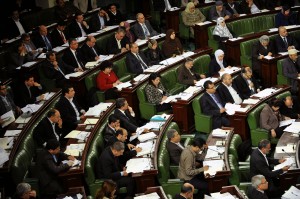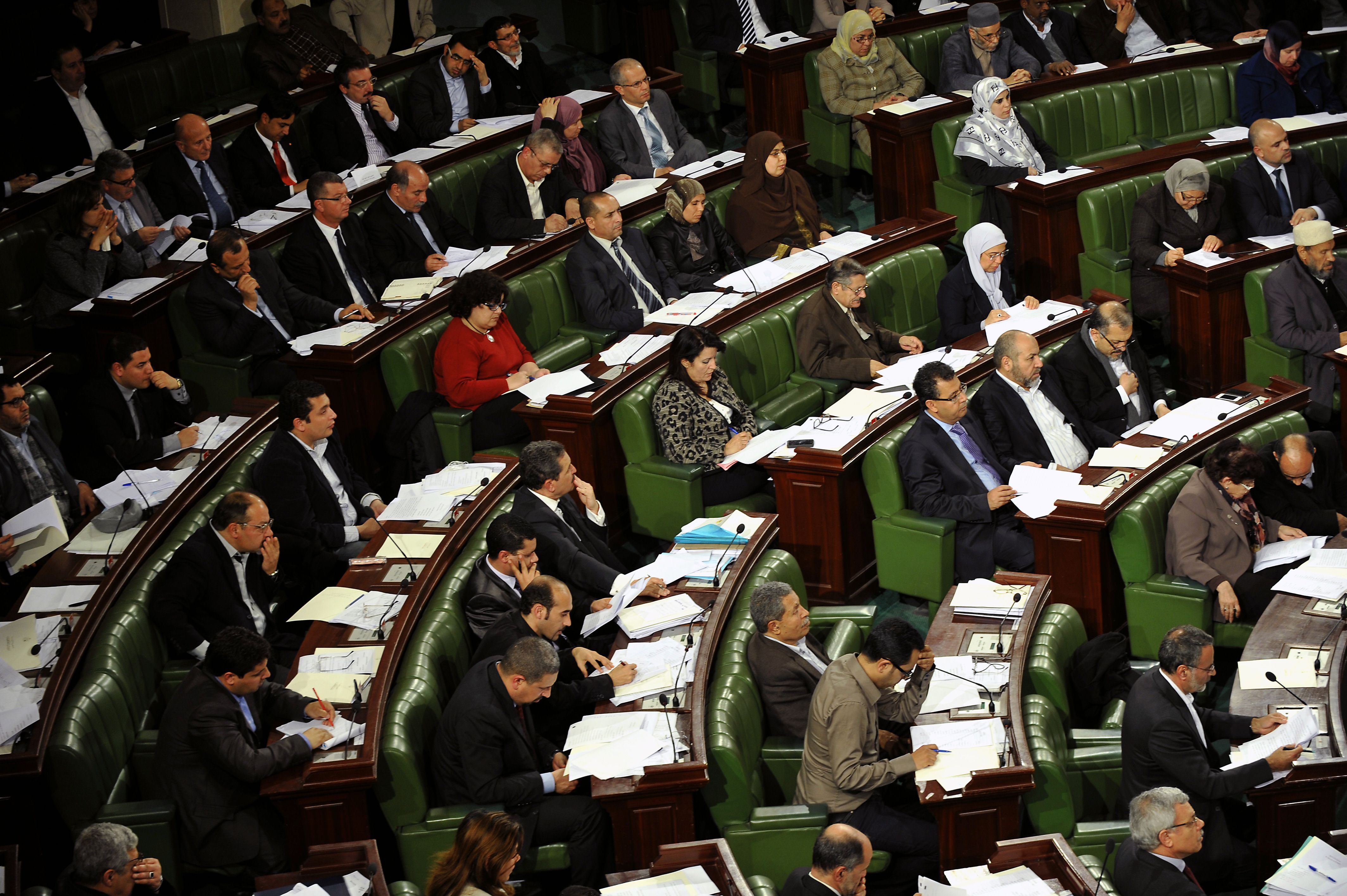
(AFP Photo)
Parliamentary elections took place in Tunisia Sunday, with a high voter turnout in the early hours of the day, said spokespersons for the two main political parties, the Islamist Ennahda Movement and secular Nidaa Tounes.
A’eda Al-Qelibi, Nidaa Tounes spokesman, said the party expects to win at least 70 seats out of 217 in the national legislature, the Assembly of Representatives.
According to Al-Qelibi, polls opened at 7am throughout the country. The electoral process unfolded as expected, with large numbers of Tunisians queuing to vote, though some polling stations experienced minor organisational difficulties due to the long lines, he said.
Most polling stations were located inside schools, with voters having to dip their index finger in blue ink before voting to prevent vote fraud.
ATIDE (Tunisian Association for Electoral Integrity and Democracy), an organisation monitoring and observing the elections process, fielded 2,693 volunteers all over the country. The association claims to have recorded numerous instances of irregularities and infractions during the voting process.
“There were many people who registered for the elections but could not find their names on the registers,” said Leila Chraibi Ayadi, an ATIDE member who monitored the election at a polling station in the Lac area of Tunis. “These people were not able to vote. We believe this has effectively deprived people of their right to vote.”
“We informed ISIE [responsible for elections organisation] about all these problems and we suggested allowing any Tunisian with proof of registration to vote,” she added.
One 30 year-old Tunisian voter, Malek Othmani, said his greatest concern was the economy.
“The cost of living is too high in comparison to our salary,” he said.
Ines Tlili, a photographer and activist, said the mood was completely different from that of the elections held in 2011. If three years ago Tunisians were proud to vote, this time “a lot of citizens are disappointed”, she said.
“The least people expect is to have public and democratic institutions, an independent justice system, and an end to the authorities’ abuses and impunity,” she said. “I’m not really confident about the transparency and honesty of these elections. Money is corrupting the whole process.”
Rami Jioui, 27, said the main challenges for the new government will be subduing terrorism and improving the country’s economic performance.
“Unemployment is now very high, there is still poverty, and everything is becoming more expensive,” he said. “I can’t say who will win these elections but I think the match is between Ennahda and Nidaa Tounes. We will see the results tomorrow.”
This is the first parliamentary election in Tunisia following the adoption of a new constitution in January 2014 and the second parliamentary election since the Tunisian revolution in 2011.The country’s presidential elections are scheduled to take place on 23 November.

